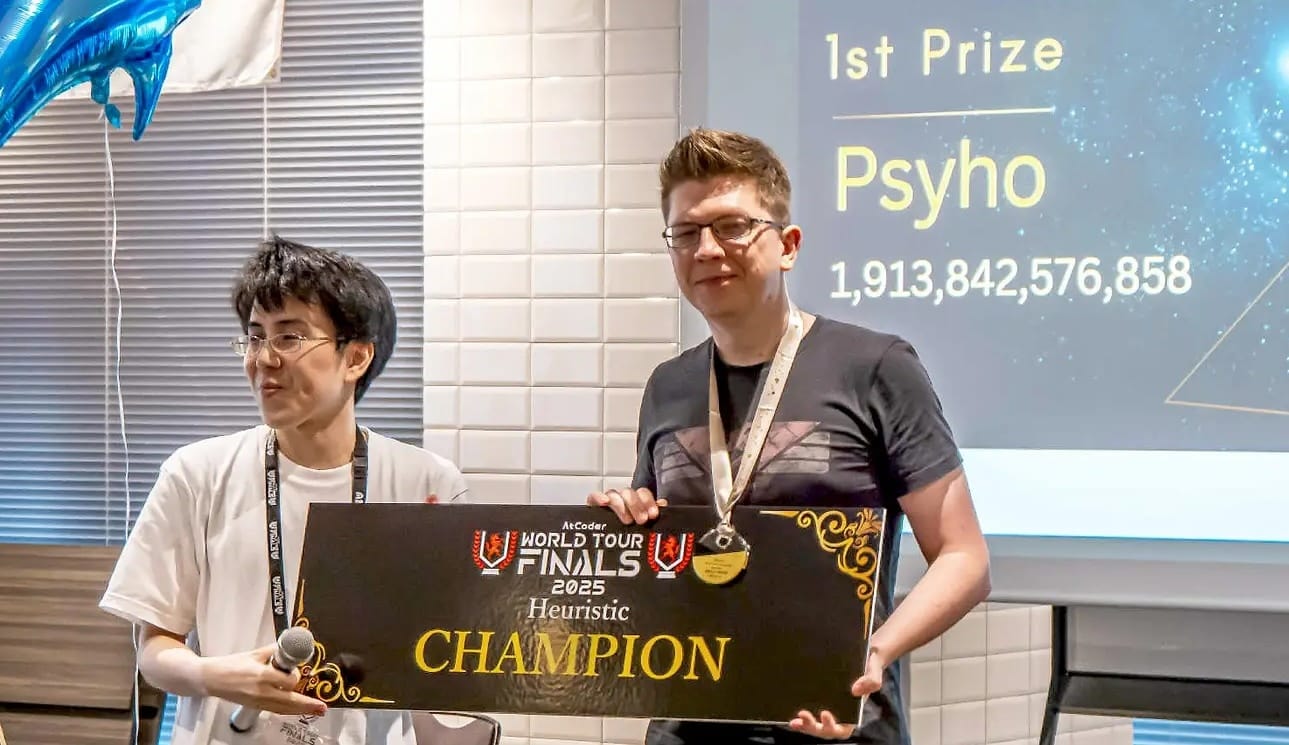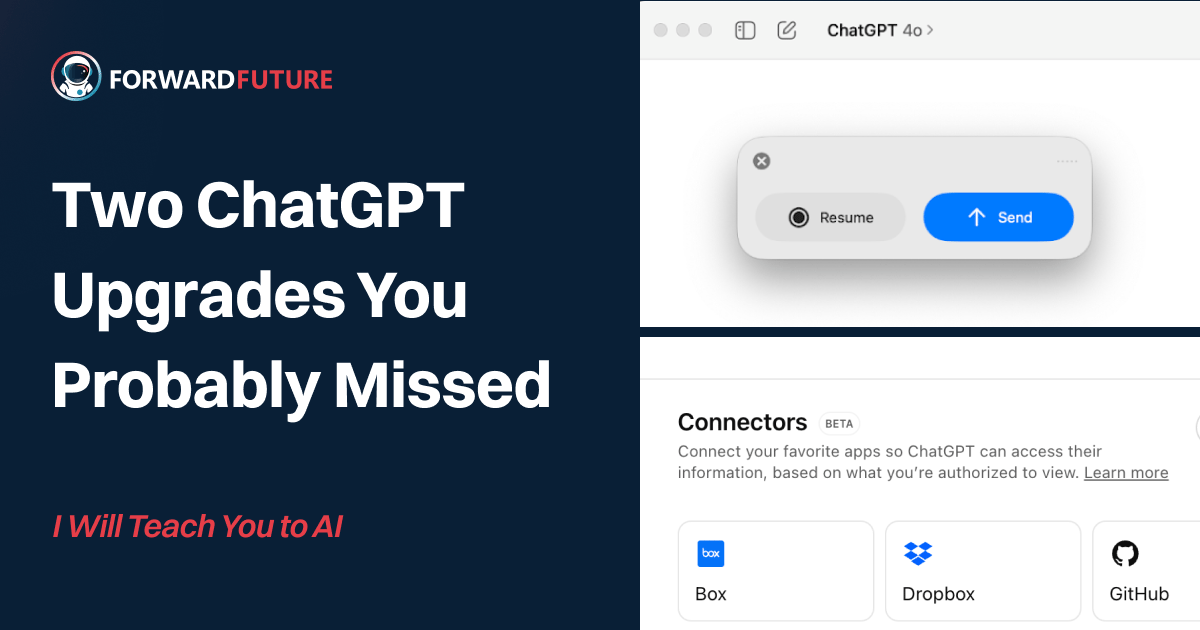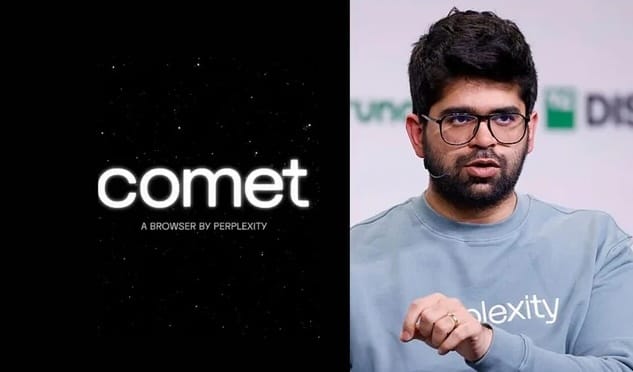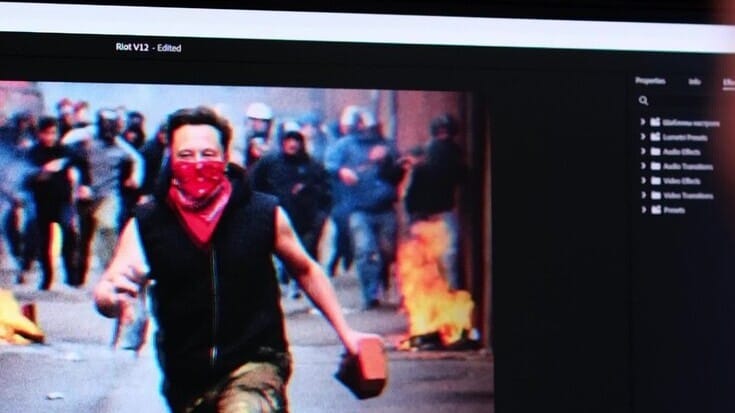- Forward Future by Matthew Berman
- Posts
- 🧑🚀 Human Coder Prevails, Smarter Browsing & Amazon Job Cuts
🧑🚀 Human Coder Prevails, Smarter Browsing & Amazon Job Cuts
Netflix leans on AI, DuckDuckGo filters results, Trump targets model bias, Meta rejects EU rules, and Perplexity bets on India.
🗞️ THE WEEKEND RECAP
Top Stories You Might Have Missed

🧑💻 Human Coder Beats OpenAI: At Tokyo’s 2025 AtCoder Finals, Polish programmer Przemysław Dębiak edged out OpenAI’s model with a creative, last-minute solution: “Humanity has prevailed (for now!)” he quipped.
🍿 Netflix Uses AI in Series for First Time: El Eternauta features AI-generated VFX, slashing production time by 90%. Netflix says the tech boosts storytelling and cuts costs, aiming to empower creators, not replace them, as AI reshapes its future content pipeline.
🚫 DuckDuckGo Adds AI Image Filter: Users can now hide AI-generated images in search results via a new “AI images” dropdown. The tool uses open-source blocklists to reduce low-quality content and comes amid growing frustration with AI clutter in online searches.
🏛️ Trump Plans Order Against ‘Woke AI’: A new executive order would require AI firms with federal contracts to be politically neutral. It’s part of Trump’s push to curb perceived liberal bias in models.
🙅♂️ Meta Rejects EU AI Code Ahead of Law: Calling it overreach, Meta won’t sign the EU’s voluntary AI code, citing legal uncertainty. The move sets up tension as Europe’s strict AI Act looms, forcing compliance from companies deploying general-purpose models.
📈 Perplexity Taps India to Challenge OpenAI: With a free Airtel deal for 360M users, Perplexity is betting on massive growth in India. It’s gaining ground in downloads and active users, but still trails far behind ChatGPT globally in both revenue and scale.
🤝 NVIDIA CEO Courts China Amid AI Chip Talks: On a high-profile visit, Jensen Huang praised China’s AI and pledged deeper ties. Officials welcomed investment as NVIDIA eyes demand for its H20 chips—newly cleared for export but still awaiting U.S. approval.
🔻 Amazon Cuts Cloud Jobs Amid AI Shift: AWS is laying off hundreds as Amazon reallocates resources toward AI. The cloud division remains highly profitable, but like peers, Amazon is tightening operations to fund costly AI efforts and boost long-term growth.
🚨 Critical NVIDIA Flaw Exposes AI Cloud Data: CVE-2025-23266 lets attackers escape containers with a 3-line exploit, risking full server takeover. Affecting 37% of environments, the bug shows AI stacks remain vulnerable to old-school infrastructure flaws.
Enjoying our newsletter? Forward it to a colleague—
it’s one of the best ways to support us.
👾 FORWARD FUTURE ORIGINAL
Record Mode & Connectors Will Change How You Use ChatGPT at Work

They didn’t make major headlines, but ChatGPT got two powerful upgrades recently:
Record Mode lets ChatGPT listen to your meetings, transcribe them in real time, and (here’s the kicker) remember what was said so you can ask questions later.
Connectors plug ChatGPT into your email, files, calendar, and internal tools, so it can finally answer questions using your actual work data.
These features quietly transform ChatGPT from a passive tool into an active teammate. If you’re a founder, operator, or knowledge worker, they’re worth a closer look. → Read the full article here.
🖥️ AGENTIC BROWSING
Perplexity’s Comet Browser Aims to Out-Google Google with Autonomous AI Actions

Perplexity’s new AI browser, Comet, pushes the boundaries of what web browsing can be by taking real actions on your behalf. Replacing Google Search with Perplexity’s “answer engine,” it delivers distilled responses and embeds an AI assistant that summarizes content, scans tabs, and compares products.
But its standout feature is autonomy: Comet can send emails, unsubscribe from mailing lists, accept LinkedIn invites, and even place Amazon orders, no clicks required. Though it’s not always faster than doing it yourself, Comet’s ability to execute real tasks marks a shift toward agentic browsing. It's an early, imperfect glimpse at the kind of assistant Google is racing to build, and may have just been beaten to. → Read the full article here.
🎥 CREATIVITY
The Dor Brothers Built a Viral Empire with AI-Generated Video and MTV Attitude

The Dor Brothers, a scrappy Lisbon-based video studio, have become internet sensations by creating entirely AI-generated films that blend satire, spectacle, and subversive humor. Their viral hits, including a surreal Trump rap video, have racked up over 100 million views and drawn commercial interest from brands eager to tap into the AI wave.
While critics dismiss their work as “AI slop,” founder Yonatan Dor sees it as a pure creative expression, free from the constraints of traditional production. Their process begins with a chatbot and ends with hyperreal videos powered by tools like Runway and Google Veo. With projects like “Vorex” and “The Fountain,” the Dor Brothers are betting that AI’s next leap will let creators rival Hollywood, with nothing but prompts and vision. → Read the full article here.
🔬 RESEARCH
How Knowledge Distillation Quietly Revolutionized AI Efficiency

Knowledge distillation, where a large, costly AI model “teaches” a smaller one, has become a foundational technique for building compact, efficient AI systems. Originally proposed in a 2015 paper by Geoffrey Hinton and colleagues, the method transfers nuanced “dark knowledge” via probability-weighted outputs, helping student models learn more efficiently.
It’s how models like DistilBERT were born and why companies like Google and OpenAI now offer distillation as a service. While allegations that China’s DeepSeek misused OpenAI’s model drew headlines, distillation itself isn’t new—just increasingly critical to making powerful AI affordable and scalable. → Read the full paper here.
📽️ VIDEO
AI News: Windsurf Drama, Meta Building ASI, Meta Closed Source? Grok 4 Drama, and more!
Matt covers the latest in AI news: Windsurf’s deal drama, Meta’s supercluster ambitions, Grok’s prompt fiasco, and Mistral’s new Whisper-crushing model release. Get the full scoop in Matt’s latest video! 👇
🧰 TOOLBOX
Smarter ID Checks, Faster 3D Modeling, and Sharper Voice AI Insights
🪪 FaceMexReal-time facial recognition & emotion analysis for ID checks, behavior tracking & emotion-based customer insights. | 🧊 Sloyd AIAI-powered tool for fast 3D modeling, ideal for games, app prototyping & creating custom digital assets in minutes. | Real-time analytics for Voice AI calls—track failures, analyze durations, and boost agent performance with insights. |
🗒️ FEEDBACK
Help Us Get Better
What did you think of today's newsletter? |


Reply